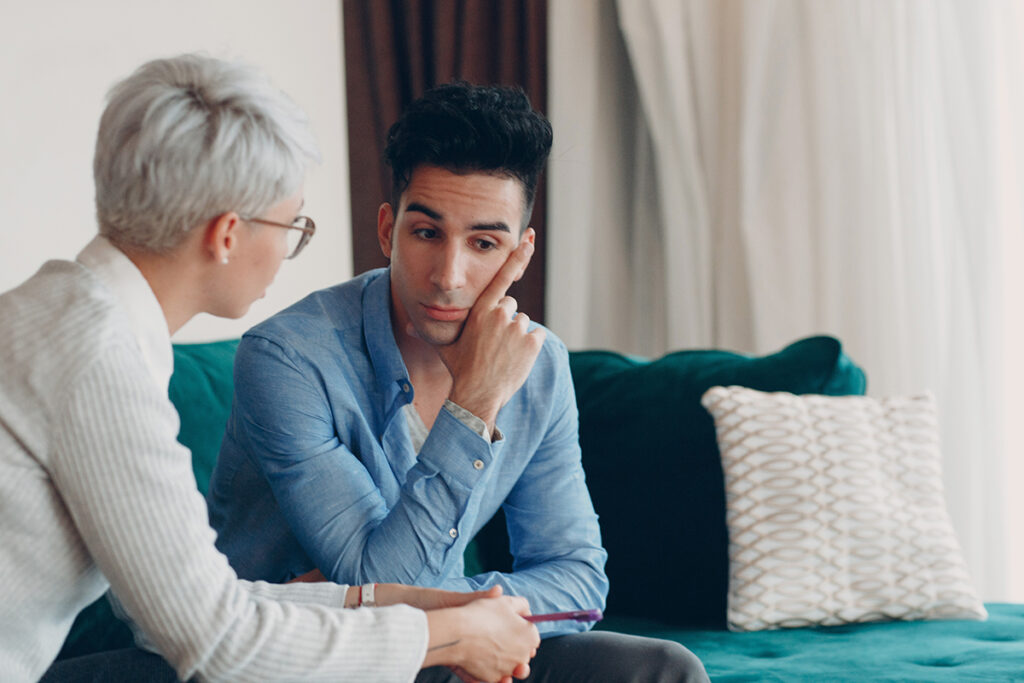Kava is a popular supplement known for its body-relaxing and anxiety-reducing effects, but it has the potential to be addictive. What are the signs of kava abuse? Learn more about kava and get help by turning to our addiction treatment programs at Promises. Call us today at 844.875.5609.
What Is Kava?
Kava is a substance that comes from the plant Piper methysticum, which is native to the western Pacific islands. It is typically consumed as an extract or a beverage, and while it’s non-alcoholic, it does have psychoactive properties.
In the United States, kava is marketed as a sleep-inducer and muscle-relaxant, with the potential to help with anxiety in a way similar to benzodiazepines. Kava is a central nervous system depressant that impacts the receptors of neurotransmitters like GABA while stimulating the release of dopamine.
Because some people experience euphoria when consuming kava, it affects the reward section of the brain, causing it to want to repeat its use. That can lead to dependence and addiction.
Long-term kava use may cause liver damage, which can occur in as little as one to three months of regular kava use.
What Are the Signs of Kava Abuse?
Although kava is a natural supplement, it may lead to improper consumption. It can be habit-forming, and people often build a tolerance, causing them to have to use more of it to obtain the same effects. It poses a particular danger to those with anxiety disorders because kava helps them self-medicate.
Some of the most common signs of kava abuse include:
- Wanting to stop using kava but being unable to do so
- Thinking about using kava throughout the day
- Continuing using kava despite negative consequences
- Needing to use more kava to obtain the same effects
- Experiencing cravings
- Withdrawing from social situations to use kava
Another sign of kava abuse is using the herbal supplement with another substance to enhance the feelings of euphoria. Usually, people use kava with alcohol because the combination heightens the effects of both substances.
Kava abuse can lead to experiencing withdrawal symptoms if you stop using it abruptly. They can include:
- Fatigue
- Cravings
- Headache
- Nausea
- Rebound anxiety
Although the withdrawal symptoms are typically not severe, they can still be uncomfortable and can lead you to continue using kava to avoid experiencing them.
Treating Kava Abuse
If you find yourself unable to stop using kava, there is help available. Turning to substance use disorder treatment programs, such as those we offer at Promises, can provide the support you need.
We offer both residential and outpatient programs to meet your exact needs. Whether you are just starting your recovery or have unsuccessfully attempted to get sober in the past, a residential treatment program can be the right choice. During residential treatment, you stay at our facilities and receive 24/7 care.
If you can’t step away from your life because of work or family responsibilities, you can turn to our outpatient services instead. We offer partial hospitalization and intensive outpatient programs, each providing personalized care.
No matter what treatment program you choose, you receive individual and group therapy sessions to help you understand the underlying cause of the addiction. With group therapy sessions, you also get a chance to hear from others who are struggling with similar issues.
Get Help for Kava Abuse at Promises Today
You don’t have to struggle with substance abuse on your own. By turning to us at Promises, you can receive the exact treatment you need to achieve the long-term sobriety you seek. Get started right now by calling Promises at 844.875.5609 to speak with one of our experts.

